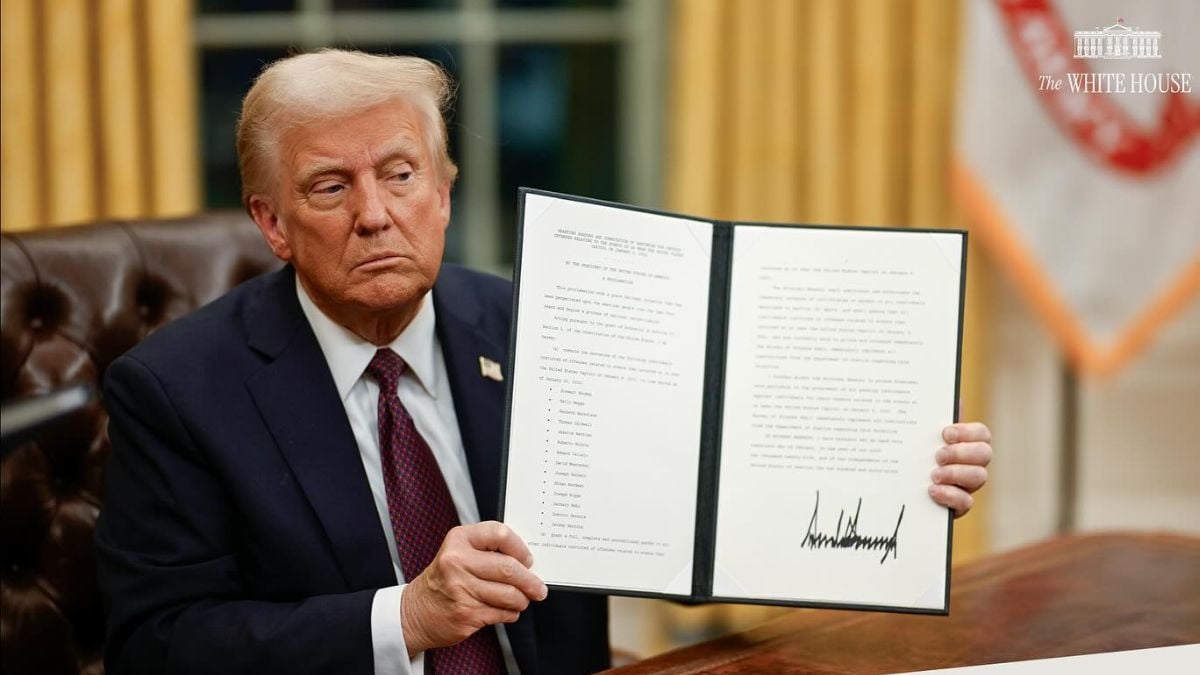
President Donald Trump has recently sparked widespread debate and concern with an executive order that many believe reverses decades of progress in employment equity. The order, issued on January 21, 2025, has raised questions about the future of diversity, equity, and inclusion (DEI) initiatives and the broader implications for civil rights protections in the workplace. Here’s a detailed breakdown of the situation.
What Is the Equal Employment Act?
The term “Equal Employment Act” often refers to policies derived from key civil rights legislation, particularly President Lyndon B. Johnson’s Executive Order 11246. Signed on September 24, 1965, this order required federal contractors to ensure equal opportunity in hiring, promotion, and other employment practices, regardless of race, color, religion, sex, or national origin. It built upon the Civil Rights Act of 1964 and the Voting Rights Act of 1965, both of which aimed to dismantle systemic discrimination.
Over the decades, this executive order has served as a cornerstone for affirmative action policies and anti-discrimination enforcement in federal contracting. It has also been a model for private-sector diversity initiatives.
Did Trump Revoke the Equal Employment Act?
In short, Trump’s executive order effectively nullifies Executive Order 11246 and related policies, which have been pivotal in fostering workplace diversity and preventing discrimination. His directive goes further, requiring federal agencies to:
- Terminate affirmative action programs.
- End diversity-related mandates and preferences.
- Cease enforcing policies promoting DEI in federal contracting.
- Investigate and potentially prosecute private companies over DEI programs deemed discriminatory.
This marks a stark departure from the practices upheld by six previous Republican administrations, which, while not uniformly expanding affirmative action, refrained from dismantling its foundations.
Why Did Trump Take This Step?
Trump’s administration has long criticized DEI initiatives, arguing they create “reverse discrimination” against white individuals and men. The Supreme Court’s 2023 decision against race-conscious admissions in colleges bolstered this narrative, leading many conservatives to view DEI programs as inconsistent with federal anti-discrimination laws.
Trump’s executive order states:
“The Federal Government is charged with enforcing our civil-rights laws. The purpose of this order is to ensure that it does so by ending illegal preferences and discrimination.”
It frames DEI initiatives as illegal and counterproductive, alleging they violate the principles of merit-based employment.
How Does This Affect Federal Contractors?
Federal contractors are directly impacted by this order. They must now:
- Cease all affirmative action and DEI-related programs within 90 days.
- Refrain from considering race, gender, or other protected characteristics in employment decisions.
- Certify compliance with the new federal requirements in all contracts.
Failure to comply could result in contract termination and legal action. The Office of Federal Contract Compliance Programs (OFCCP), previously tasked with enforcing affirmative action, is now mandated to prevent DEI initiatives in contracting.
What Does This Mean for Private Employers?
Private employers not engaged in federal contracting are not explicitly bound by the order. However, the directive encourages the Department of Justice to:
- Identify private companies for investigation.
- Pursue civil litigation against employers implementing DEI practices.
- Discourage diversity-related hiring and promotion policies.
This raises concerns about broader implications for corporate DEI programs nationwide.
What Is the History Behind This Policy?
President Johnson’s Executive Order 11246 was part of a broader civil rights movement aimed at addressing historical injustices. It came two years after the landmark “I Have a Dream” speech by Rev. Martin Luther King Jr. and just months after the Voting Rights Act of 1965.
This order has faced opposition since its inception. Critics, particularly segregationists and later conservative groups, argued it imposed “quota systems” that infringed upon merit-based employment principles. Despite these criticisms, the order remained intact for over five decades, even being expanded by subsequent administrations to include protections for sexual orientation and gender identity.
What Are DEI Initiatives, and Why Are They Controversial?
Diversity, Equity, and Inclusion (DEI) encompasses policies designed to:
- Promote representation of underrepresented groups.
- Address systemic biases in hiring and workplace culture.
- Ensure equitable pay and career advancement opportunities.
While proponents argue these programs are essential for combating discrimination, opponents claim they foster reverse discrimination and violate federal anti-discrimination laws. The debate intensified after 2020’s racial justice protests, with many corporations adopting DEI policies to align with public sentiment. However, these policies have since faced legal challenges and conservative pushback.
What Are the Potential Legal Implications?
Trump’s order introduces a host of legal uncertainties. While Title VII of the Civil Rights Act of 1964 prohibits employment discrimination, courts have yet to establish a clear consensus on whether DEI initiatives inherently violate these provisions. Several high-profile lawsuits, including those involving companies like CBS and Morgan Stanley, highlight this legal gray area.
Employers now face heightened scrutiny, with potential lawsuits from the Equal Employment Opportunity Commission (EEOC) or the Department of Justice. Additionally, federal contractors must navigate conflicting requirements between state and federal laws.









